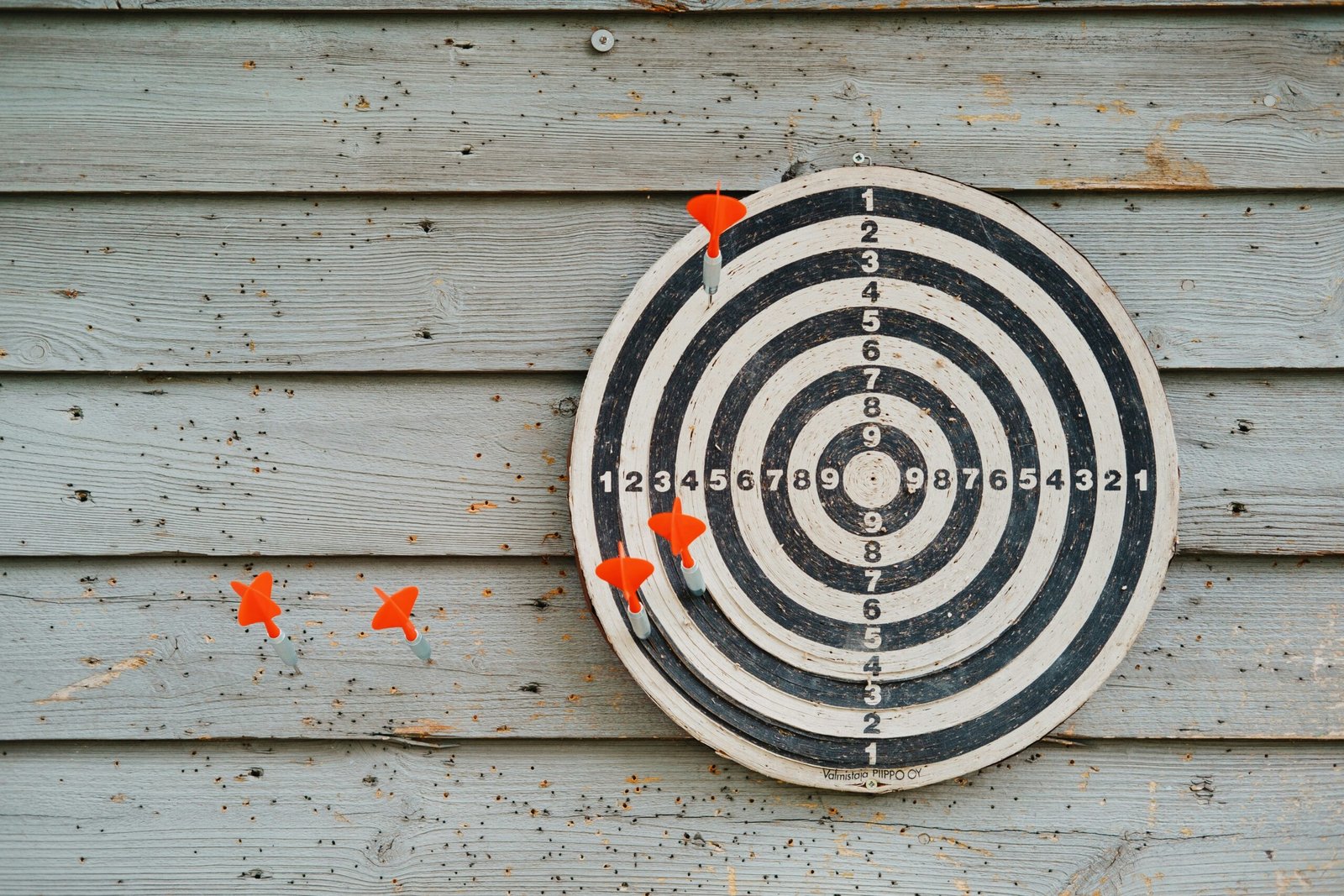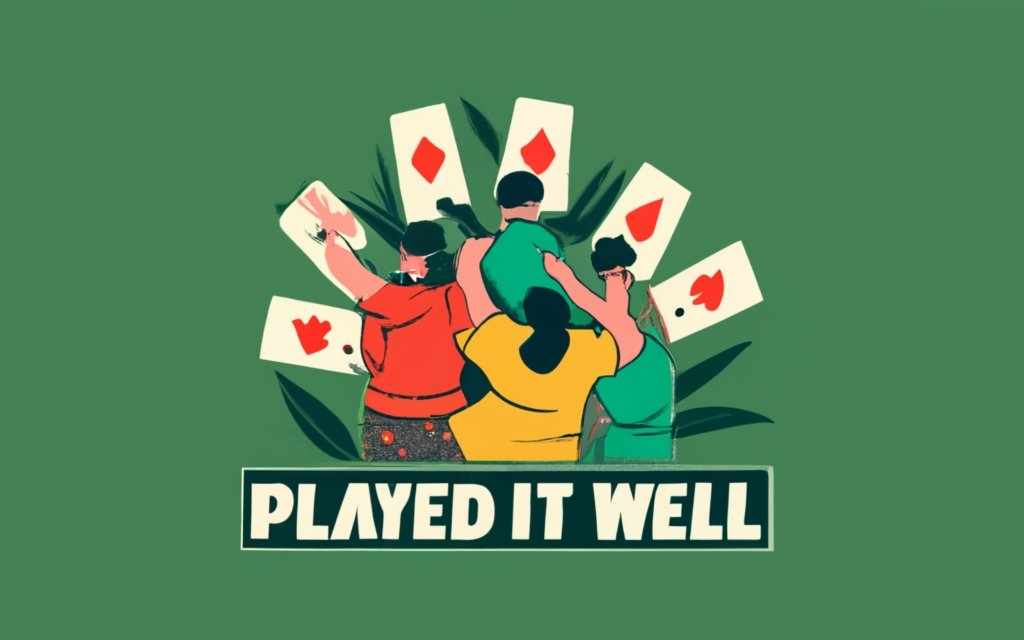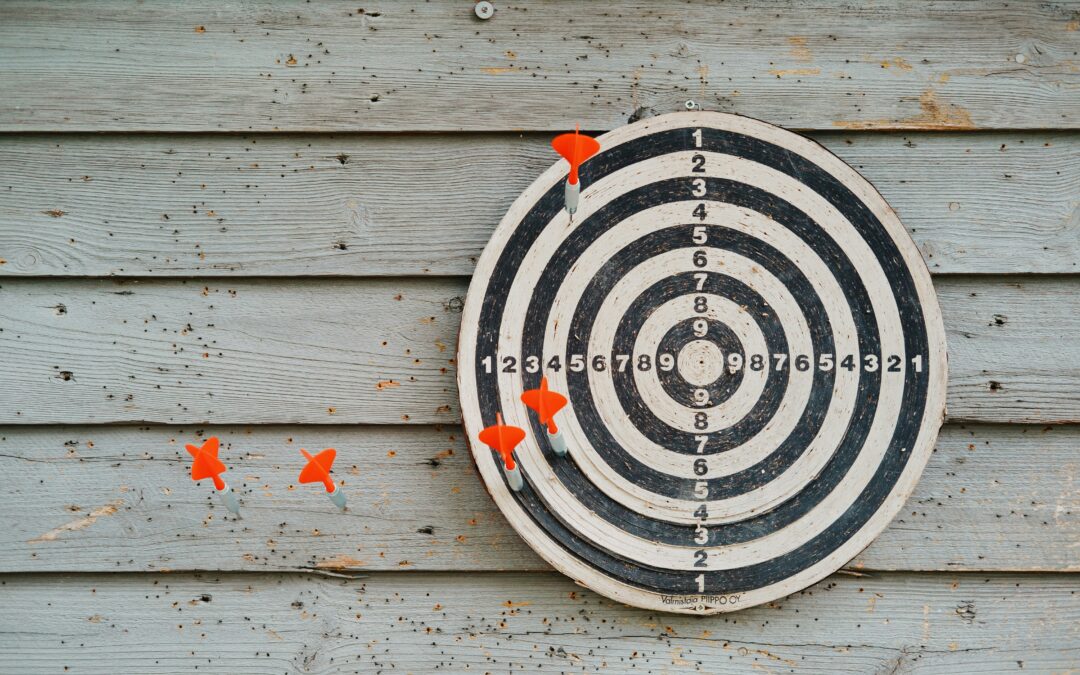So you think you’ve mastered all the basic board games and are ready for a real challenge? Look no further than medium complexity board games. These games strike the perfect balance between accessible rules and strategic depth, offering thrilling gameplay that will keep you on your toes. Whether you’re a seasoned board game enthusiast or just looking for a new way to entertain yourself, medium complexity board games are sure to provide hours of immersive and engaging fun. Get ready to put your skills to the test and discover a whole new level of board game excitement. Board games have been enjoyed by people of all ages for centuries, providing a source of entertainment and social interaction. While there are many different types of board games available, medium complexity board games offer a unique blend of challenge and accessibility. In this article, we will explore the benefits of playing medium complexity board games, discuss how to choose the right game for you, delve into the various game mechanics you may encounter, and provide tips and strategies for mastering these games.

This image is property of images.unsplash.com.
Benefits of Medium Complexity Board Games
Enhances strategic thinking
One of the key benefits of playing medium complexity board games is the enhancement of strategic thinking skills. These games require you to carefully evaluate the game state, anticipate your opponents’ moves, and make decisions that will ultimately lead you to victory. By engaging in strategic thinking, you can develop your ability to analyze complex situations, think several steps ahead, and consider multiple options before making a move. This skill can be valuable not only in board games but also in real-life situations that require critical decision-making.
Provides a balanced challenge
Medium complexity board games strike a balance between simplicity and complexity, offering a challenge that is both engaging and attainable. While they may have more rules and mechanics than simpler games, they are not as overwhelming as highly complex games. This balance allows players to dive deeper into gameplay, explore different strategies, and experience the satisfaction of overcoming challenges. It keeps players motivated and engaged without feeling too overwhelmed or discouraged, making it a perfect choice for players seeking both a mental challenge and an enjoyable experience.
Encourages critical decision-making
In medium complexity board games, every decision you make can have a significant impact on the outcome of the game. These games require you to analyze the potential risks and rewards of each move, consider opportunity costs, and assess various outcomes. By honing your critical decision-making skills, you can learn to think analytically, weigh options effectively, and make calculated choices based on the information available. This skill transfers well to real-life scenarios, where decision-making is often a crucial aspect of success.
Fosters social interaction
While board games can be enjoyed solo, playing medium complexity board games with others fosters social interaction and brings people together. These games encourage players to engage in friendly competition, negotiate and collaborate with one another, and discuss strategies and tactics. Playing board games with friends, family, or even strangers can create shared experiences and strengthen social bonds. It provides an opportunity to connect with others on a deeper level, fostering a sense of camaraderie and enjoyment that goes beyond the game itself.
Boosts cognitive skills
Medium complexity board games offer a range of cognitive benefits, promoting the development of various mental skills. From memory and concentration to logical reasoning and problem-solving, these games provide a comprehensive cognitive workout. Playing these games requires you to manage resources efficiently, adapt strategies to evolving situations, and analyze complex game systems. By regularly engaging in medium complexity board games, you can strengthen your cognitive abilities and improve your overall mental acuity.
Choosing the Right Medium Complexity Board Game
With the vast array of medium complexity board games available, choosing the right one can be a daunting task. However, considering a few key factors can help you make an informed decision.
Consider player count and preferences
The first step in choosing a medium complexity board game is to consider the number of players who will be participating. While many board games cater to a wide range of player counts, some games are better suited for specific player sizes. Additionally, take into account the preferences and gaming experience of the individuals involved. Some players may prefer cooperative games, while others may enjoy competitive gameplay. Understanding the preferences of your gaming group will help ensure that everyone enjoys the game.
Evaluate game length and complexity
Medium complexity board games vary in terms of gameplay length and complexity. Consider the amount of time you have available for a gaming session and choose a game that fits within that timeframe. Additionally, evaluate the complexity of the game’s rules and mechanics. Some games may have a steeper learning curve than others, requiring more time and effort to understand. Be honest with yourself and your group about the complexity level you are comfortable with, as this will make the gaming experience more enjoyable for everyone.
Research game mechanics and themes
Medium complexity board games often incorporate a variety of game mechanics, which can greatly impact gameplay. Some popular mechanics you may encounter include worker placement, deck building, area control, set collection, and tile placement. Familiarize yourself with these mechanics and consider which ones you find most appealing. Additionally, consider the theme of the game. Whether you enjoy exploring ancient civilizations, solving mysteries, or building your own empire, choosing a game with a theme that resonates with you can greatly enhance your gaming experience.
Read reviews and watch gameplay videos
Before investing in a medium complexity board game, take the time to read reviews and watch gameplay videos. Reviews can provide insights into the game’s strengths and weaknesses, as well as its overall enjoyment factor. Watching gameplay videos allows you to see the game in action, giving you a better idea of how it plays and whether it aligns with your preferences. Additionally, consider seeking recommendations from trusted sources or online gaming communities to get a variety of perspectives before making a purchase.
Attend board game meetups or conventions
Attending local board game meetups or conventions is an excellent way to discover new medium complexity board games and interact with fellow enthusiasts. These events often provide opportunities to try out different games and seek guidance from experienced players. You can learn about the latest game releases, participate in gaming tournaments, and join discussions about the board gaming hobby. The community aspect of these events can not only enhance your gaming experience but also introduce you to a network of like-minded individuals who share your passion for board games.

This image is property of images.unsplash.com.
Understanding Game Mechanics
Medium complexity board games often incorporate various game mechanics that shape the gameplay experience. Familiarizing yourself with these mechanics can help you better understand the rules and strategies involved in each game. Here are some common game mechanics you may encounter:
Worker placement
Worker placement mechanics involve players taking turns placing their worker tokens on various action spaces on the game board. Each space typically provides a different action or resource that the player can gain. This mechanic requires careful planning and resource management, as players must strategize their worker placement to maximize their efficiency and gain an advantage over opponents.
Deck building
Deck building mechanics involve players starting with a small deck of cards and gradually adding and improving their cards throughout the game. These cards can represent various abilities, resources, or actions that the player can use. Deck building games require players to carefully manage their decks, making decisions on which cards to acquire or discard to optimize their strategies.
Area control
Area control mechanics involve players competing for dominance over specific areas on the game board. Players may use various actions or resources to strengthen their presence in these areas and secure control. Area control games often require players to anticipate opponent moves, form alliances, and balance offensive and defensive strategies to gain the upper hand.
Set collection
Set collection mechanics involve players collecting and grouping specific items or cards to earn points or achieve specific objectives. These games often require players to make decisions on which cards to acquire and which to discard to form sets that maximize their score. Set collection mechanics can be found in a wide range of medium complexity board games, from historical games to fantasy-themed adventures.
Tile placement
Tile placement mechanics involve players taking turns placing tiles on the game board to create a shared playing area. These tiles may represent various landscapes, buildings, or other elements that interact with the game’s mechanics. Tile placement games often require players to think strategically about where to place their tiles to maximize their own benefits while potentially hindering their opponents’ progress.
Developing Strategic Thinking
Once you have chosen a medium complexity board game and familiarized yourself with its mechanics, it’s time to develop your strategic thinking skills. Here are some key strategies to consider:
Evaluate the game state
Constantly evaluate the current state of the game, including the positions of other players, available resources, and potential opportunities. Understanding the game state allows you to make informed decisions based on the evolving situation, adapt your strategies accordingly, and take advantage of opportunities that arise.
Anticipate and analyze opponent moves
Pay close attention to your opponents’ moves and try to anticipate their actions. Analyze their strategies, consider their goals, and predict their potential moves. By understanding your opponents’ intentions, you can make more informed decisions and potentially counter their strategies, gaining an advantage in the game.
Establish short-term and long-term goals
Have a clear vision of both short-term and long-term goals. Identify objectives that align with your overall strategy and work towards achieving them. While short-term goals can provide immediate advantages, long-term goals may require careful planning and resource management. Balancing both types of goals can help you maintain a strategic focus throughout the game.
Adapt strategies to evolving situations
As the game progresses, the situation may change, requiring you to adapt your strategies accordingly. Be flexible in your approach and willing to adjust your plans based on new information or opportunities that arise. Adapting to evolving situations demonstrates your ability to think critically, analyze circumstances, and make the best decisions given the current circumstances.
Manage resources efficiently
Effective resource management is crucial in medium complexity board games. Make thoughtful and efficient use of the resources available to you, ensuring that you maximize their potential benefits. Avoid wasting resources on unnecessary actions and prioritize the allocation of your resources based on your overall strategy and objectives.

This image is property of images.unsplash.com.
Mastering Decision-Making Skills
Medium complexity board games offer countless decision-making opportunities, and mastering this skill is key to success. Here are some strategies to help you make informed and calculated choices:
Weigh risks and rewards
Consider the potential risks and rewards of each decision you make. Assess the potential gains and losses, and evaluate whether the benefits outweigh the potential drawbacks. Balancing risks and rewards is essential in making strategic decisions and can help you minimize potential mistakes while maximizing your chances of success.
Prioritize objectives
In situations where multiple objectives are available, prioritize them based on their importance and relevance to your overall strategy. Determine which objectives are crucial for your success and allocate your resources and efforts accordingly. Prioritizing objectives helps you stay focused and avoids wasting resources on less significant goals.
Consider opportunity costs
Every decision comes with an opportunity cost – the potential benefits you forfeit by choosing one option over another. Analyze the opportunity costs of each decision and weigh them against the potential benefits. By considering opportunity costs, you can make more informed choices and select options that provide the greatest overall advantage.
Assess potential outcomes
Before making a decision, assess the potential outcomes of each option. Consider the short-term and long-term consequences of your choices and forecast the potential impact on the game. By assessing potential outcomes, you can make decisions that align with your overall strategy and maximize your chances of achieving your goals.
Make calculated and informed choices
Avoid impulsive decisions and instead make calculated and informed choices. Take the time to analyze the situation, consider your options, and evaluate the potential outcomes before committing to a decision. By making carefully considered choices, you can minimize the risk of making mistakes and increase your chances of achieving your desired outcome.
Tips for Learning Medium Complexity Games
Learning a new medium complexity board game can be an exciting but challenging experience. Here are some tips to help you learn and master these games:
Read the rulebook carefully
The rulebook is your guide to understanding the mechanics and gameplay of the board game. Take the time to read the rulebook carefully, paying attention to the details and examples provided. Understanding the rules is crucial for playing the game correctly and enjoying a smooth gaming experience.
Start with tutorial or introductory scenarios
Many medium complexity board games offer tutorial scenarios or introductory gameplay options. These scenarios provide a simplified version of the game, allowing you to learn the basic mechanics and rules gradually. Starting with tutorial or introductory scenarios can help ease you into the game and prevent feeling overwhelmed by the complexity.
Play solo or cooperative variants
If you are new to medium complexity board games or prefer to learn at your own pace, consider playing solo or cooperative variants of the game. These variants allow you to familiarize yourself with the mechanics, strategize, and make decisions without the pressure of competitive gameplay. Solo or cooperative play can serve as valuable practice sessions before engaging in competitive matches.
Watch tutorial/playthrough videos
Watching tutorial or playthrough videos can be a helpful way to learn a new medium complexity board game. Many gaming enthusiasts and content creators create comprehensive videos that explain the game’s rules, mechanics, and strategies. Seeing the game in action can make it easier to understand and visualize how the various components and actions work together.
Seek guidance from experienced players
If you have access to experienced board gamers, seek their guidance and learn from their expertise. Experienced players can provide valuable insights, strategic tips, and help clarify any questions or uncertainties you may have. Their guidance can accelerate your learning process and help you grasp the nuances of the game more effectively.

Strategies for Winning
Once you have learned the rules and mechanics of a medium complexity board game, it’s time to develop strategies that will increase your chances of winning. Here are some strategies to consider:
Focus on game objectives
Every board game has specific objectives that players must achieve to win. Focus your efforts on understanding and achieving these objectives, as they are the key to victory. Dedicate your resources, actions, and strategies towards fulfilling the game’s goals, keeping your eye on the ultimate prize.
Observe opponent actions
Pay close attention to your opponents’ actions and take note of their strategies and decision-making patterns. By observing their moves, you can gain insights into their objectives, strengths, and weaknesses. This knowledge allows you to adjust your strategies and exploit their vulnerabilities, potentially gaining an advantage in the game.
Exploit weaknesses and create advantages
Identify weaknesses in your opponents’ strategies, positions, or resources and exploit them to gain an advantage. Look for opportunities to block their actions, hinder their progress, or acquire resources that they rely on. By creating advantages and capitalizing on their weaknesses, you can tilt the game in your favor.
Balance offense and defense
Finding the right balance between offense and defense is crucial in medium complexity board games. While focusing solely on offense may offer short-term gains, neglecting defense can leave you vulnerable to attacks from opponents. Balance your strategies, considering both offensive moves that further your own objectives and defensive measures that protect your position and hinder opponents’ progress.
Strive for efficient turn optimization
Maximizing the efficiency of your turns is essential for success in medium complexity board games. Analyze the available actions, resources, and opportunities during each turn and strive to make the most impactful and strategic decisions possible. Avoid wasting actions or resources on non-essential moves and optimize your turn to gain the maximum advantage.
Enhancing Social Interaction
Playing medium complexity board games is not only about the gameplay but also the social interaction that comes with it. Here are some ways that playing these games can enhance social interaction:
Engage in friendly competition
Medium complexity board games often involve competition among players, which can add an exciting and engaging element to the social experience. Engaging in friendly competition allows players to challenge one another, showcase their strategic skills, and build friendly rivalries. A healthy dose of competition can encourage players to push their limits and enjoy the thrill of victory or the lessons learned from defeat.
Negotiate and collaborate
Some medium complexity board games incorporate negotiation or collaboration elements, which require players to interact and communicate with one another. Negotiation can involve making deals, trading resources, or forming alliances. Collaboration involves working together towards a shared objective. Both of these aspects encourage players to communicate, express their ideas, and make joint decisions. These interactions foster connections and create a more immersive and enjoyable gaming experience.
Discuss strategies and tactics
Medium complexity board games often provide opportunities for players to discuss their strategies, tactics, and decision-making processes. Sharing insights, seeking advice, or engaging in friendly debates about the best course of action can not only enhance the gaming experience but also deepen the connections between players. These discussions allow players to learn from one another, exchange ideas, and gain new perspectives.
Share memorable moments
Playing medium complexity board games can create memorable moments and shared experiences. Whether it’s a thrilling comeback, an unexpected twist, or a clever move, these moments become stories that players can share and reminisce about. Sharing these memorable moments not only adds to the enjoyment of the game but also strengthens the bonds between players, fostering a sense of camaraderie and friendship.
Build relationships with fellow players
Playing board games with others provides a platform for building relationships and forming connections. The shared experience of playing medium complexity board games can create a sense of camaraderie and allow players to bond over their common interests. Building relationships with fellow players can extend beyond the gaming table, providing opportunities for future gaming sessions, social gatherings, or even lasting friendships.

Common Mistakes to Avoid
While playing medium complexity board games, it’s essential to avoid common mistakes that can hinder your gameplay experience. Here are some mistakes to watch out for:
Lack of long-term planning
Neglecting long-term planning can be detrimental to your success in medium complexity board games. Overlooking the bigger picture and focusing solely on short-term gains can leave you ill-prepared for the evolving game state. Take the time to consider the long-term implications of your decisions, set overarching goals, and plan your strategies accordingly.
Ignoring opponent moves
Failing to pay attention to your opponents’ moves can lead to missed opportunities and ineffective strategies. Remember to observe and analyze your opponents’ actions, as their moves can provide valuable information about their intentions and plans. Incorporate this knowledge into your decision-making process and adjust your strategies accordingly.
Neglecting engine-building mechanics
Some medium complexity board games include engine-building mechanics, which require players to develop and optimize their game engines throughout the course of the game. Neglecting these engine-building mechanics can put you at a disadvantage, as they often provide valuable resources or abilities that can greatly enhance your gameplay. Take the time to understand and utilize these mechanics to their full potential.
Overlooking rule intricacies
Medium complexity board games often have intricate rules and mechanics that may be easy to overlook or misinterpret. Failing to thoroughly understand and follow the rules can lead to confusion, misunderstandings, or even unfair gameplay. Take the time to familiarize yourself with all the rules and seek clarification if any aspects are unclear.
Underestimating the importance of timing
Timing plays a crucial role in medium complexity board games. Failing to consider the timing of your actions, resource acquisition, or strategic moves can result in missed opportunities or ineffective strategies. Be mindful of the game’s pace, the actions of other players, and the timing of key events or abilities to maximize your impact on the game.
Recommended Medium Complexity Board Games
If you’re looking to dive into the world of medium complexity board games, here are some recommendations to get you started:
Settlers of Catan
Settlers of Catan is a classic medium complexity board game that has gained widespread popularity. Players take on the roles of settlers, building and developing their settlements while competing for limited resources. With its intuitive gameplay, strategic decision-making, and elements of negotiation, Settlers of Catan is an excellent choice for players looking for an engaging and accessible game.
Ticket to Ride
Ticket to Ride is a popular board game in which players compete to build railway routes across a map of various locations. The game combines elements of set collection, resource management, and strategic planning. With its simple rules and strategic depth, Ticket to Ride offers a balanced and enjoyable experience for both casual and more experienced gamers.
Carcassonne
Carcassonne is a tile-placement game where players take turns adding tiles to create a landscape of cities, roads, and fields. With its elegant gameplay, Carcassonne offers a blend of strategy, planning, and luck. The game rewards forward thinking and careful tile placement, making it an excellent choice for players who enjoy tactical decision-making.
Pandemic
Pandemic is a cooperative board game that challenges players to work together to contain and cure deadly diseases that threaten the world. With its tension-filled gameplay, strategic cooperation, and ever-changing game state, Pandemic offers a unique and thrilling gaming experience. Players must coordinate their actions, make difficult decisions, and prevent the spread of the diseases before time runs out.
Dominion
Dominion is a deck-building game where players aim to build the most efficient and powerful deck of cards. The game combines elements of deck construction, resource management, and strategy. With its extensive variety of card combinations and strategic decision-making, Dominion offers a rewarding and replayable experience for fans of medium complexity board games.
In conclusion, medium complexity board games offer a range of benefits, from enhancing strategic thinking and decision-making skills to fostering social interaction and boosting cognitive abilities. By following the tips for choosing the right game, understanding game mechanics, developing strategic thinking, and avoiding common mistakes, you can improve your gameplay experience and increase your chances of success. Whether you’re a seasoned board gamer or just starting out, medium complexity board games provide a balance of challenge and accessibility that can provide hours of entertainment and enjoyment. So gather your friends, choose a game, and embark on an exciting journey of strategy and fun!






